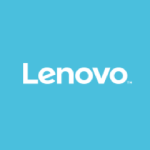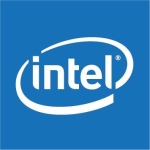Mainly, we started using them when we implemented a cyber recovery solution with Data Domain, in which several Dell PowerEdge Rack servers are also involved.
By implementing this solution, we wanted cyber resilience. We wanted a 1/3 copy cyber recovery solution that would prevent us from losing all the data in the event of a cyber attack.
In terms of deployment, we use them on-prem, directly with Dell as our provider.
They provide the cyber resilience that we were looking for. They are working perfectly so far, and we are happy with them.
The PowerEdge Cyber Resilient Architecture approach to security is very good. Overall, Dell's approach to security is pretty good. I like using Dell products because they always have security configuration guides.
In terms of energy consumption, Dell PowerEdge Rack Servers can possibly be improved, but this is what I would say regarding any other type of server.
I do not know specifically about Dell's sustainability goals or how PowerEdge can help, but at the level of on-prem servers, it can always be improved by moving towards new virtualization to reduce the impact and perhaps reduce the number of servers.
Dell PowerEdge Rack Servers have helped to reduce unplanned production downtime. In our case, we have planned a maximum downtime of one week in the event of a cyber attack. These are the ratios we use.
The OpenManage console has affected our IT staff’s productivity. It has helped in a positive way because it is a console that centralizes many things that our staff manages every day. In that sense, it is in a centralized console. It helps a lot.
Dell PowerEdge Rack Servers have not impacted the overall flexibility of our operations or business. In our case, it is an isolated additional system, so it is not like adding an additional layer to improve the flexibility per se.
There is no specific feature that is more valuable than other servers for us. Because it is part of an overall solution that Dell has offered us, we opted for Dell's PowerEdge servers. Overall, it is a good solution. It works perfectly, especially in terms of availability and reliability, without any type of issue, which is why we are very happy with it.
I would rate Dell PowerEdge Rack Servers a nine out of ten.
Foreign Language:(Spanish)
Funciona perfectamente y proporciona la ciberresiliencia y seguridad que necesitamos
¿Durante cuánto tiempo utiliza los servidores en rack Dell PowerEdge?
He estado usando servidores en rack Dell PowerEdge durante aproximadamente dos años.
¿Cuál es su principal caso de uso de esta solución? (Incluya detalles sobre su entorno.
Principalmente, comenzamos a utilizarlos cuando implementamos una solución de recuperación cibernética con Data Domain, en la que también están involucrados varios servidores Dell PowerEdge Rack.
Al implementar esta solución, queríamos ciberresiliencia. Queríamos una solución de recuperación cibernética de 1/3 de copia que nos evitara perder todos los datos en caso de un ciberataque.
En términos de implementación, los utilizamos de forma local, directamente con Dell como nuestro proveedor.
Comparta cómo los servidores en rack Dell PowerEdge han mejorado su infraestructura de TI. Si no fue así, explique por qué.
Proporcionan la ciberresiliencia que estábamos buscando. Están funcionando perfectamente hasta ahora y estamos contentos con ellos.
El enfoque de seguridad de PowerEdge Cyber Resilient Architecture es muy bueno. En general, el enfoque de seguridad de Dell es bastante bueno. Me gusta usar los productos Dell porque siempre tienen guías de configuración de seguridad.
En términos de consumo de energía, los servidores en rack Dell PowerEdge son posiblemente mejorables, pero esto es lo que diría de cualquier otro tipo de servidor.
No sé específicamente cuáles son los objetivos de sostenibilidad de Dell ni cómo puede ayudar PowerEdge, pero a nivel de servidores locales, siempre se puede mejorar avanzando hacia una nueva virtualización para reducir el impacto y quizás reducir la cantidad de servidores.
Los servidores en rack Dell PowerEdge han ayudado a reducir el tiempo de inactividad de producción no planificado. En nuestro caso, hemos previsto un tiempo de inactividad máximo de una semana en caso de ciberataque. Estas son las proporciones que utilizamos.
La consola OpenManage ha afectado la productividad de nuestro personal de TI. Ha ayudado de manera positiva porque es una consola que centraliza muchas cosas que nuestro personal maneja día a día. En ese sentido, está en una consola centralizada. Esto ayuda mucho.
Los servidores en rack Dell PowerEdge no han afectado la flexibilidad general de nuestras operaciones o negocios. En nuestro caso se trata de un sistema adicional aislado, por lo que no es como añadir una capa adicional para mejorar la flexibilidad de por sí.
¿Qué características le han parecido más valiosas y por qué?
No existe ninguna característica específica que sea más valiosa que otros servidores para nosotros. Debido a que es parte de una solución global que nos ha ofrecido Dell, optamos por los servidores PowerEdge de Dell. En general, es una buena solución. Funciona perfectamente, sobre todo en términos de disponibilidad y fiabilidad, sin ningún tipo de problema, por lo que estamos muy contentos con ella.
¿En qué áreas se podrían mejorar los servidores en rack Dell PowerEdge?
El costo se puede mejorar. Para otros casos de uso, utilizamos servidores Hitachi, que son un poco más baratos pero tienen una funcionalidad similar.
¿Utilizó anteriormente una solución diferente? De ser así, ¿por qué la cambió?
También utilizamos Hitachi. No hemos cambiado. Mantenemos las dos marcas.
Antes de elegir, ¿evaluaste otras opciones? ¿De ser asi, cuales?
Evaluamos Veritas. Evaluamos las soluciones de Netapp. Había cinco o seis proveedores diferentes. No vimos una diferencia crítica. En general fueron similares, pero Dell estuvo más presente en todo el proceso.
¿Qué aconseja a otros sobre el costo de instalación, el precio y/o la licencia?
Se pueden mejorar en cuanto a su precio.
¿Cuáles son sus impresiones sobre la escalabilidad de esta solución?
La escalabilidad es muy buena. Los utilizamos en varios lugares. El departamento principal en el que se utilizan es el nuestro, que es para la copia de seguridad de la protección de datos. Se utilizan principalmente para una solución de recuperación cibernética.
¿Cuáles son sus impresiones sobre la estabilidad de esta solución?
Hasta ahora no hemos tenido problemas. Son muy estables.
¿Has visto el ROI (Retorno de la Inversión)? En caso afirmativo, ¿de qué manera (es decir, métricas/puntos de datos)?
Simplemente ha cubierto nuestros casos de uso.
Cuéntanos tu experiencia con el servicio y soporte al cliente.
Valoro su soporte de forma positiva. Llevo varios años trabajando con ellos y estoy muy contento con su apoyo.
¿Cómo calificaría esta solución en una escala del 1 al 10 en cuanto a servicio y soporte?
8.
En una escala del 1 al 10 (1=peor, 10=mejor), ¿cómo calificaría los servidores en rack Dell PowerEdge? Por favor explique por qué.
Calificaría los servidores en rack Dell PowerEdge con un nueve de diez.















